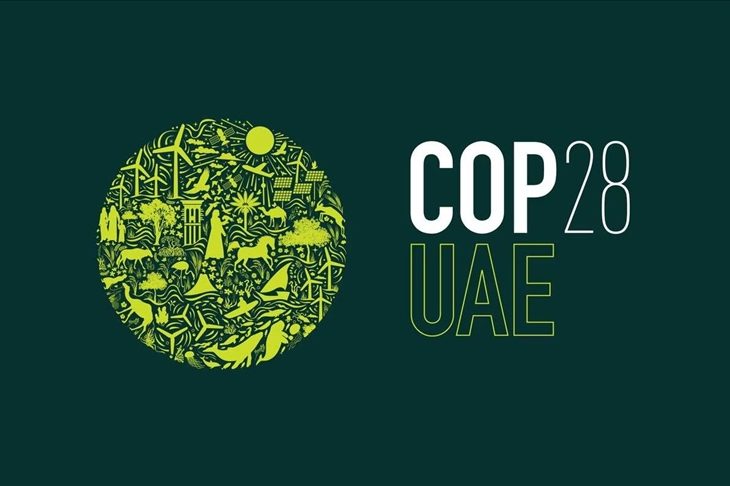Dr. Sultán Ahmed Al Jabeer
26 years have passed since the adoption of the Kyoto Protocol, the first major global agreement promising to reduce carbon emissions. Since then, many climate summits have taken place worldwide, and rich nations have consistently discussed ecology. However, emissions have continued to rise.
The climate crisis is no longer a distant threat; it is happening right now. Disasters like infernal wildfires, prolonged droughts, melting ice layers, floods, hurricanes, and typhoons are destroying the livelihoods of communities, putting millions of lives at risk.
Unfortunately, the messages from these summits do not contribute to raising awareness of the magnitude of the climate crisis challenge.
Climate Denialism
The statements made by heads of state and business leaders regarding the gradual elimination of coal-based energy (a major contributor to global warming) are a mockery, especially when most major oil and gas producers plan to increase production.
The overwhelming evidence of global climate changes due to the use of fossil fuels highlights the urgent need for a radical shift in energy sources and usage.
These stances repeatedly clash with conventional development ideas and, behind them, the aspiration for lifestyles based on the technology, comfort, and consumption models of industrialized countries.
A substantial change in energy management is necessary, along with a shift in development paradigms.
There is a growing number of alternatives that align decarbonization with better biodiversity protection and an adequate quality of life. It is crucial to rescue, implement, and strengthen these alternatives, abandoning a significant portion of fossil energy sources to address the environmental crisis.
We challenge the corporate extortion attempting to prove that efforts to mitigate climate change by reducing the use of fossil fuels and developing cleaner energy forms will lead to job reductions. In reality, millions of people are losing their jobs due to the various consequences of climate change.
A fare transition
Extreme weather events this year have caused widespread disruptions, affecting workers globally. Climate change will increase the frequency and severity of droughts, hurricanes, floods, and wildfires, leading to environmental migrations and job losses. Those forced to migrate face critical living conditions or precarious employment situations.
The rise in thermal stress due to global warming will reduce working hours and jeopardize millions of jobs. The most affected sectors will be agriculture and construction, where tasks are often performed under the sun. This impact extends to street-related activities, including services like emergencies, waste management, transportation, tourism, and other forms of industrial work.
During the COP15 climate summit in Copenhagen, unions focused their strategy on incorporating the concept of « Just Transition » into the negotiation text. They undertook numerous actions nationally and internationally to garner support from governments and other social groups.
The International Labour Organization (ILO) describes Just Transition as a process towards an environmentally sustainable, well-managed economy that contributes to the goals of decent work for all, social inclusion, and poverty eradication.
We advocate for workers to have a prominent role at the discussion table where environmental policies are formulated.
Climate Crisis and Debt
The equation of poverty, debt, and climate crisis places these countries on the verge of catastrophic scenarios.
Countries in the global north and major world corporations bear responsibility for atmospheric warming and pollution.
Global warming will endanger worldwide food security and increase the incidence of heat-related mortality, cardiovascular diseases, and mental health issues.
It is the poor and indebted countries that will suffer the most from the consequences. We support proposals for the cancellation of debts owed to the IMF and the World Bank in light of this critical situation.
Without a planet, there is no work
We can only live as part of a living planet. We want to center both human and non-human life.
That’s why we believe it’s essential to pay attention to proposals presented as Buen Vivir from Andean countries. The philosophy of Buen Vivir, on one hand, offers a radical critique of conventional developments and, on the other, proposes alternatives committed to the quality of life for people, an expanded sense of community that encompasses the environment, and the protection of nature, recognizing its rights.
Members of the Latin America-Caribbean Coordinator of the World Organization of Workers (CLAC-WOW) hope that COP28 will be historic. We trust that its leaders will consider the common good, providing an opportunity to address the issue of a just transition. We advocate for the achievement of binding forms of energy transition that can be monitored and prevent the worst outcomes in time.
As Pope Francisco says, « What kind of world do we want to leave to those who come after us? What is at stake is our own dignity. We must leave a habitable planet for humanity that will succeed us. »
FETRALCOS – Federation of Latin American Workers in Commerce, Offices, and Private Service Companies
FELATRACCS – Latin American Federation of Workers in Culture and Social Communication
FELATRABS – Latin American Federation of Banking and Insurance Workers





